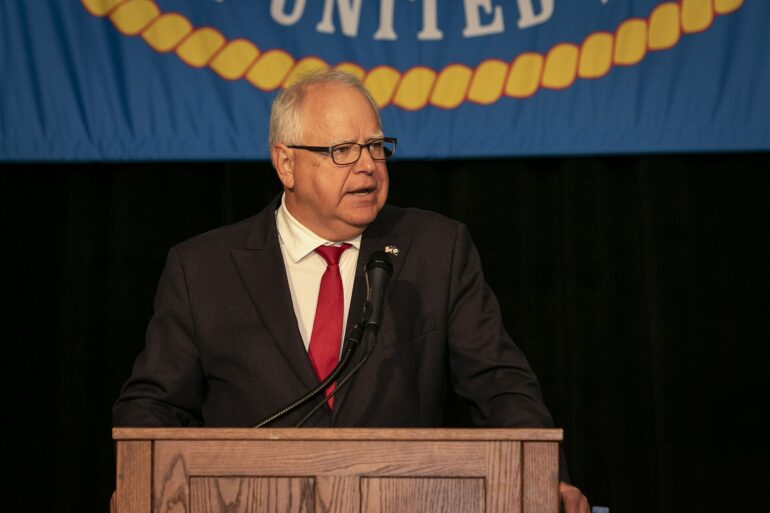In a striking commentary during a recent event, Minnesota Governor Tim Walz reportedly expressed concern over the deteriorating situation in the Middle East, suggesting that China might possess greater moral authority than the United States to facilitate peace negotiations.
His remarks came in response to escalating tensions following Israel’s military strikes against Iranian nuclear sites.
Speaking with Neera Tanden, president of the Center for American Progress, Walz reflected on the implications of Israel’s actions and the broader geopolitical landscape.
“The situation in Gaza is intolerable,” he stated, emphasizing the need for a solution that respects human rights and allows for self-determination. He noted that the ongoing violence raises questions about who can effectively mediate peace in this complex conflict.
Walz, who previously supported the Iran nuclear deal, articulated his concerns about the strategic missteps that have contributed to the current crisis. “I truly worry now,” he said.
“Iran has to retaliate in their mind, I’m sure. And now, who is the voice in the world to negotiate some type of agreement?” His comments highlighted a growing unease regarding America’s role as a neutral mediator in international conflicts.
The governor pointed out that the U.S. is often perceived as biased in its support for Israel, which complicates its ability to act as an impartial arbiter. “We are not seen as a neutral actor,” he admitted, reflecting on the historical context of U.S. involvement in the region.
Walz referenced past efforts, such as those by President Jimmy Carter, who successfully mediated the Camp David Accords, and questioned whether the U.S. could reclaim that role today.
In a provocative assertion, Walz suggested that China might step into this mediation role, despite its own human rights record, including accusations of repression against ethnic minorities.
“At some point, we’re going to have to face the reality that it might be the Chinese” who take the lead in negotiations, he said. This statement underscores the shifting dynamics of global power and the increasing complexity of international relations.
As the humanitarian crisis in Gaza continues, Walz’s comments reflect a broader dialogue about the effectiveness of U.S. foreign policy and its implications for peace in the Middle East.
With both the Iranian and Israeli governments engaged in military posturing, the likelihood of successful negotiations appears dim.
The challenges facing the U.S. in asserting its moral authority on the global stage are evident. As the conflict escalates, the potential for new alliances and the realignment of diplomatic relationships may redefine the landscape of international negotiations in the years to come. Walz’s remarks serve as a reminder of the complexities involved in achieving lasting peace amidst longstanding tensions.
[READ MORE: Trump Celebrates After Major New Legal Win]



